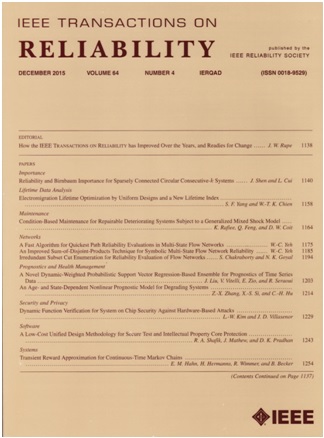考虑可靠性和成本的智能太阳能光伏系统电力弹性性能优化
IF 5.7
2区 计算机科学
Q1 COMPUTER SCIENCE, HARDWARE & ARCHITECTURE
引用次数: 0
摘要
智能太阳能光伏(PV)技术具有无污染、可再生的特点,被广泛应用于电力供应,成为可持续能源和智能能源管理的基石。与现有研究通过改变电池材料来提高光伏发电效率不同,本文从优化光伏电池板数量的角度提出了一种提高光伏发电功率弹性性能的系统可靠性和成本模型。具体而言,提出了一个多目标规划模型,以确定光伏板的最佳备件数量,使输出功率弹性最大化,同时使系统可靠性最大化,成本最小化。可靠性衡量的是光伏板在无输出状态下稳定运行的概率。成本因素包括环境效益的负成本、资源成本、运行维护成本和处罚成本。在夏季和冬季的50组Pareto最优解上进行了实验,以中国中卫市的一个地面光伏项目为例,验证了该方法的有效性。本文章由计算机程序翻译,如有差异,请以英文原文为准。
Optimizing Power Resilience Performance of Intelligent Solar Photovoltaic System for Smart Energy Management Considering Reliability and Cost
Due to being nonpolluting and renewable, intelligent solar photovoltaic (PV) technology is widely used to provide electricity and becomes a cornerstone to sustainable energy and smart energy management. Different from existing studies that improve the PV efficiency by changing cell materials, this article proposes a novel system reliability and cost model of enhancing the PV power resilience performance from the perspective of optimizing the number of PV panels. Specifically, a multiobjective planning model is proposed, which determines the optimum number of spare parts for PV panels maximizing the output power resilience while maximizing the system reliability and minimizing the cost. The reliability measures the probability of stable operation of a PV panel considering the no-power output state. The cost factor encompasses negative cost of environmental benefits, resource cost, operation and maintenance cost, and penalty cost. Experiments are performed on fifty sets of Pareto optimal solutions in summer and winter cases to illustrate effectiveness of the proposed method by using a ground-mounted PV project in Zhongwei City, China.
求助全文
通过发布文献求助,成功后即可免费获取论文全文。
去求助
来源期刊

IEEE Transactions on Reliability
工程技术-工程:电子与电气
CiteScore
12.20
自引率
8.50%
发文量
153
审稿时长
7.5 months
期刊介绍:
IEEE Transactions on Reliability is a refereed journal for the reliability and allied disciplines including, but not limited to, maintainability, physics of failure, life testing, prognostics, design and manufacture for reliability, reliability for systems of systems, network availability, mission success, warranty, safety, and various measures of effectiveness. Topics eligible for publication range from hardware to software, from materials to systems, from consumer and industrial devices to manufacturing plants, from individual items to networks, from techniques for making things better to ways of predicting and measuring behavior in the field. As an engineering subject that supports new and existing technologies, we constantly expand into new areas of the assurance sciences.
 求助内容:
求助内容: 应助结果提醒方式:
应助结果提醒方式:


